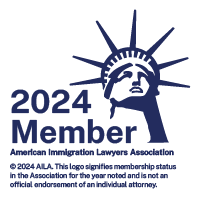by Victor Okeke | Jan 30, 2020 | Uncategorized
The rationale in Matter of Stockwell, 20 I&N Dec. 309 (BIA 1991) is to the effect that a conditional lawful permanent resident whose status has been terminated can reapply to adjust status under INA 245(a) if they have another basis to do so.
Previous USCIS position was that the Service could not entertain such reapplication until an Immigration Judge confirms such termination. In Nov 2019, the Service changed its policy manual regarding this narrow issue to accept and adjudicate a new application for adjustment following termination of CLPR status.
USCIS Policy Alert can be found here; https://www.uscis.gov/sites/default/files/policymanual/updates/20191121-CPRs-Stockwell.pdf
by Victor Okeke | Jan 30, 2020 | Uncategorized
This program generally allows Liberian nationals to apply for adjustment of status until Dec 20, 2020 if the person meets the following general criteria;
- File their adjustment of status application by Dec. 20, 2020;
- Establish that you are a national of Liberia;
- Establish that you have been continuously physically present in the United States from Nov 20, 2014, and ending on the date you properly file your Form I-485;
- Establish that you are otherwise eligible for an immigrant visa; and
- You are admissible to the United States for lawful permanent residence or eligible for a waiver of inadmissibility or other form of relief.
There are some grounds of ineligibility and certain grounds of inadmissibility do not apply.
For questions about eligibility and/or inadmissibility issues, contact our office for a consultation, or contact other competent immigration attorney of your choice.
by Victor Okeke | Nov 21, 2014 | Uncategorized
USCIS Information on the Executive Action on Immigration
Please follow the link below
http://www.uscis.gov/immigrationaction
by Victor Okeke | Nov 21, 2014 | Uncategorized
Executive Action on Immigration
DHS Memos November 2014
1.DHS Revised Enforcement/Removal Priority Memo November 20, 2014
http://www.dhs.gov/sites/default/files/publications/14_1120_memo_prosecutorial_discretion.pdf
2. DHS End of Secure Communities Memo Novemer 20, 2014
The Secure Communities Program is discontinued and replaced by the Priority Enforcement program(PEP). Instead of requests for detention, there should now generally be requests for notification in most cases.
See full text of memo
http://www.dhs.gov/sites/default/files/publications/14_1120_memo_secure_communities.pdf
3. DHS Memo Expanding DACA eligibilty and Deferred Action to include certain parents of USCs and LPRs November 20, 2014
Full text of memo
http://www.dhs.gov/sites/default/files/publications/14_1120_memo_deferred_action.pdf
4. DHS Memo Expanding Provisional Waiver I-601A program November 20, 2014
Spouses and children of LPRs are now included as well as adult children of USCs and LPRs. Read the full text here; http://www.dhs.gov/sites/default/files/publications/14_1120_memo_i601a_waiver.pdf
5. DHS Memos on Advace Parole, Parole in Place and Parole Policy for Entrepreneurs November 20, 2014
http://www.dhs.gov/sites/default/files/publications/14_1120_memo_arrabally.pdf
http://www.dhs.gov/sites/default/files/publications/14_1120_memo_parole_in_place.pdf
http://www.dhs.gov/sites/default/files/publications/14_1120_memo_business_actions.pdf
6. DHS High Skilled Business/Worker Memo November 20, 2014
http://www.dhs.gov/sites/default/files/publications/14_1120_memo_business_actions.pdf
by Victor Okeke | Aug 10, 2014 | Uncategorized
The section of the law that governs this waiver can be found in the INA Section 212(a)(9)(B)(v) and the regulatory provisions can be found in 8 CFR Section 212.7(e).
It is important to keep in mind that the statute did not change regarding this waiver. What the regulations did was to add a mechanism whereby certain eligible individuals can file this waiver here in the U.S., have it adjudicated prior to going to their overseas consulate to apply for an immigrant visa.
To be eligible, one must first and foremost be an “immediate relative” beneficiary of an approved petition. This means that only spouses of U.S.citizens, children of U.S. citizens under 21, and parents of U.S. citizens whose petitioning child is at least 21 years of age are covered. Therefore relatives of Lawful Permanent Residents cannot use this process.
The statute requires that extreme hardship must be shown to two categories of relatives: Spouse or Parent. Thus the parent of a U.S. Citizen who may have an approved immediate relative petition would not be eligible for this waiver if their only relative is their son/daughter who petitioned for them, or other U.S. citizen children for that matter.
However such parent of a U.S. Citizen in the above scenario may be eligible for the I-601A if they have a spouse or parent themselves who is a U.S. citizen even if that spouse or parent did not file the approved immediate relative petition. Of course extreme hardship to that relative must still be established. Additionally all other eligibility criteria should also be satisfied.
The above information is general in nature and does not constitute legal advice for a particular situation.
by Victor Okeke | Sep 3, 2013 | Uncategorized
What is a Notice to Appear? A Notice to Appear (usually referred to as an NTA) is the document that the government normally uses to begin removal proceedings against a non U.S. citizen. It is a charging document.
What should you do if you receive an NTA? It is best to retain competent immigration counsel if you have been served with an NTA because of the complexities of immigration law.
Why should I not gloss over my NTA?
Every NTA should be properly examined for possible ways to challenge it. In a majority of cases, there may not be any way to attack an NTA as an initial matter. But in some cases, a valid initial challenge to an NTA may result in proceedings being terminated in your favor. Below are some ways to attack the NTA:
- The legal authority under which the proceeding is based: Look to make sure that this information is contained in the NTA sufficient to advise you of the legal authority upon which the proceeding is based. If this information is absent, you may challenge the NTA on that basis.
- The charges and the legal provisions alleged to be violated: The NTA must specify this information so that each alleged charge matches the provision of the law alleged to be violated. If this information is absent, confusing or contradictory, you may challenge the NTA on that basis.
- Conduct alleged to be in violation of Law: Does the NTA specify the conduct that allegedly violates the law? If this is not specified you may also challenge the NTA on that ground.
- NTA must charge the non citizen under the right legal posture: This means the person must be properly charged as deportable or inadmissible. Each has different legal implications relating to the burden of proof and relief that may be available. If you have been charged using the wrong legal posture, you may challenge the NTA on that basis.
- NTA not issued by authorized officer: If proceedings are initiated with an NTA issued by an officer not duly authorized to issue an NTA, you may also challenge an NTA on that ground.
There are other grounds and reasons upon which one may mount a valid challenge upon the NTA but each case is different and one should make a decision after considering the totality of the facts of a particular case. In some situations, there may be other strategic reasons not to mount a challenge. In conclusion, one should always examine the NTA thoroughly to determine if there is a basis to challenge, and if so whether such a challenge should be made.


